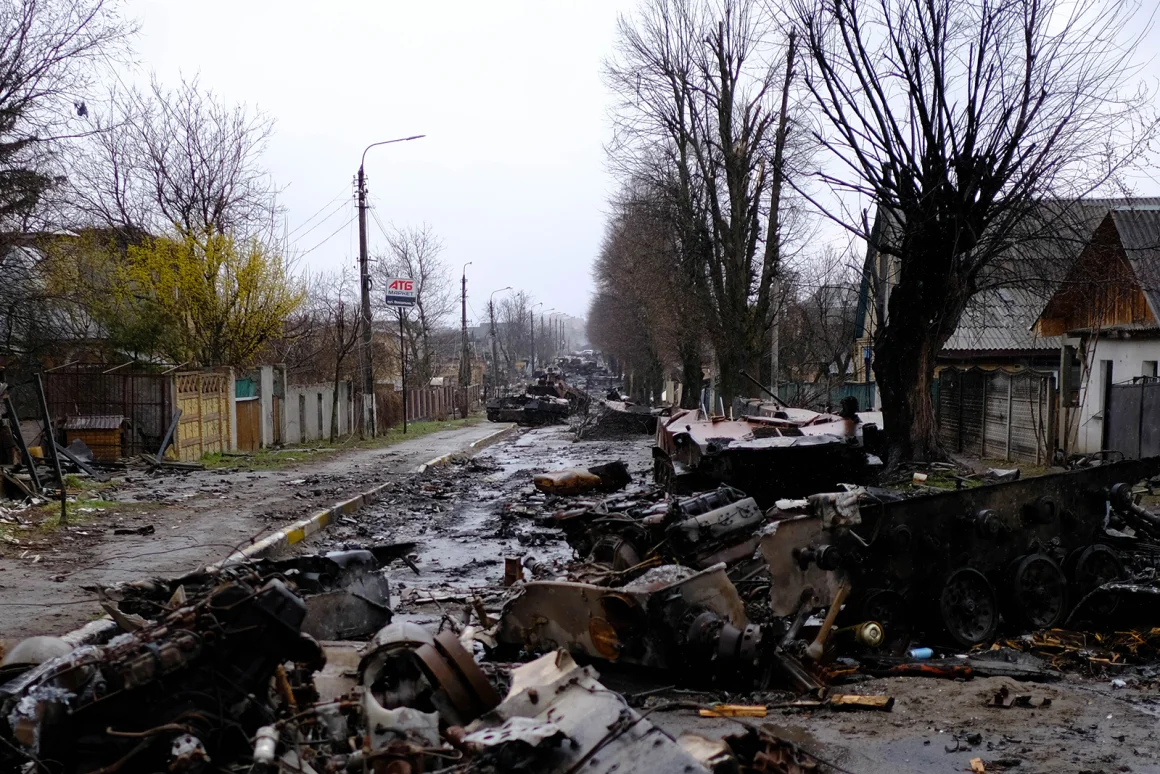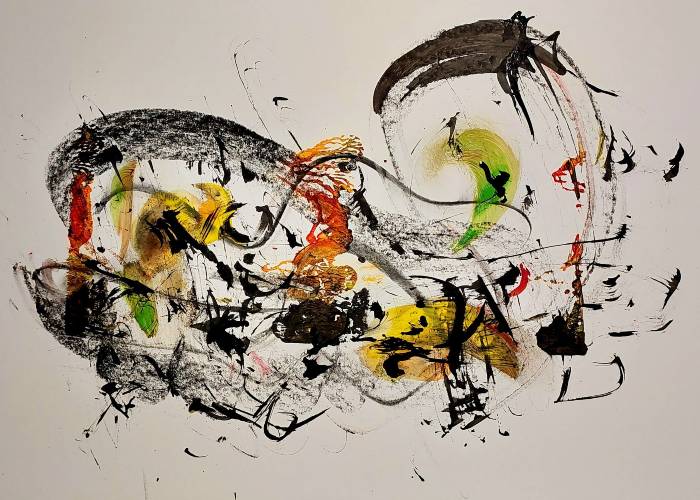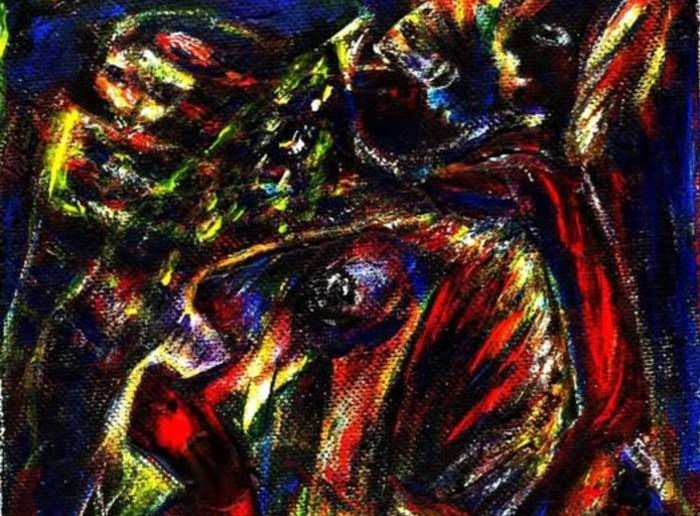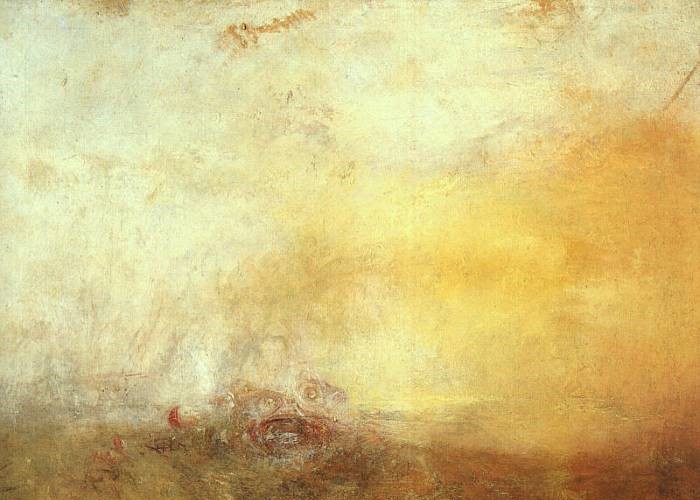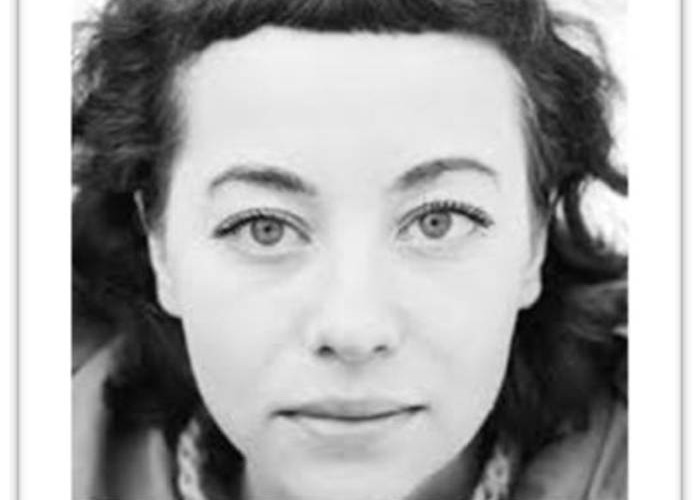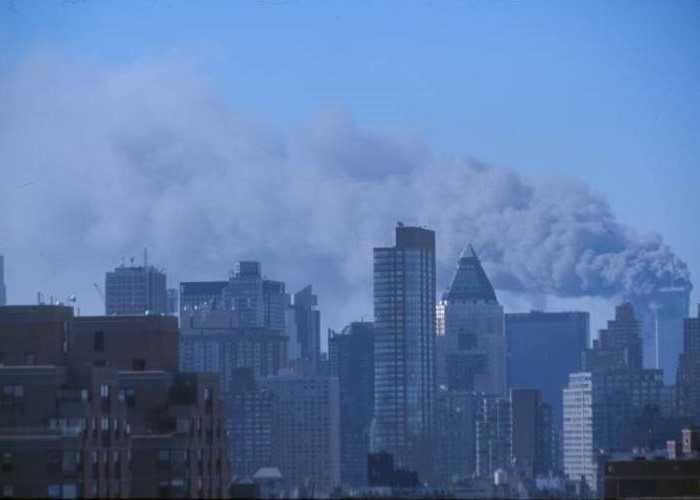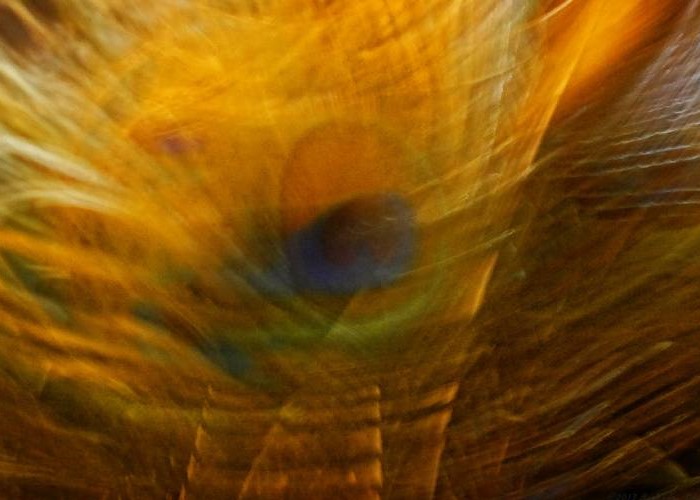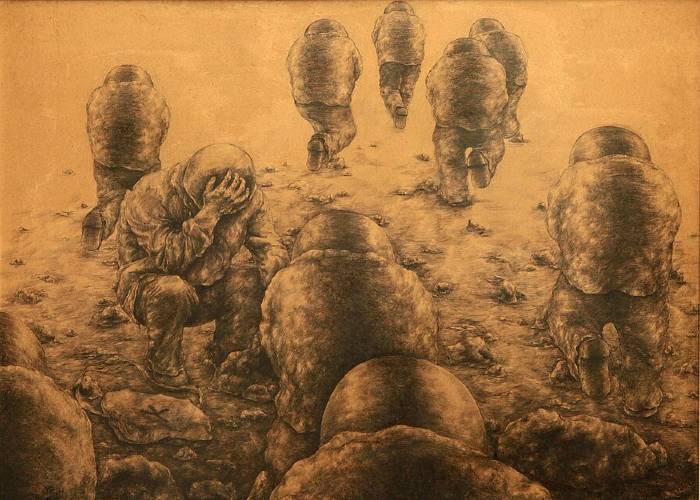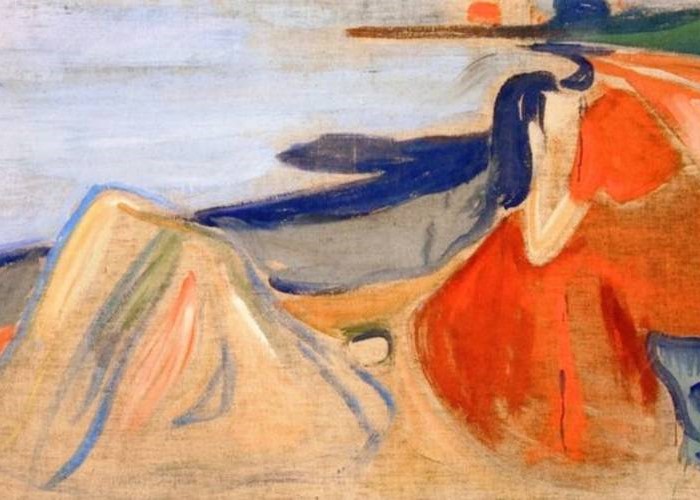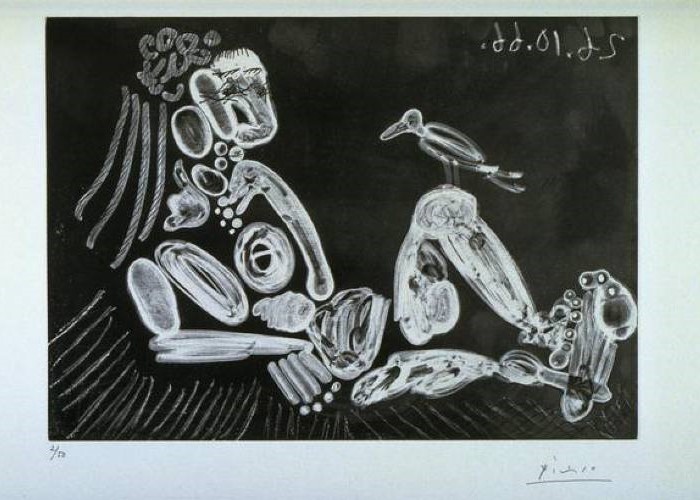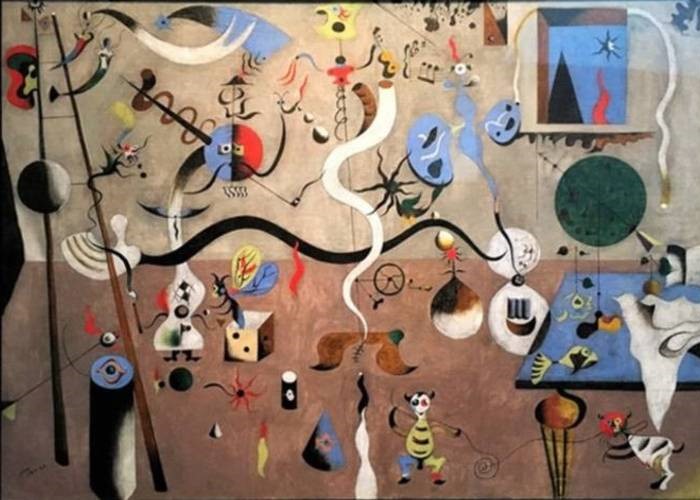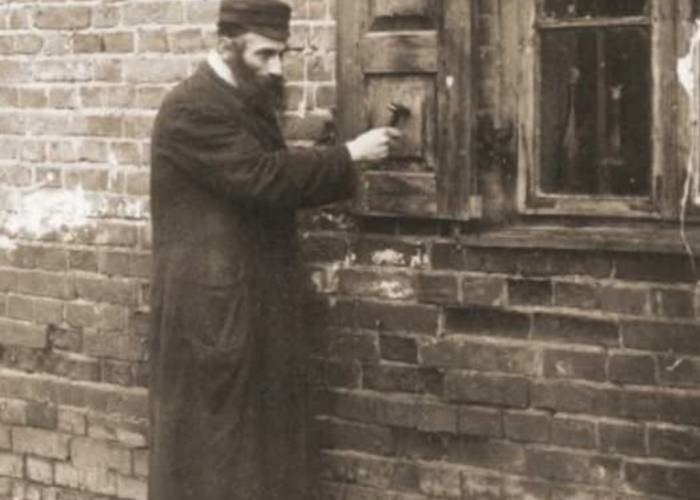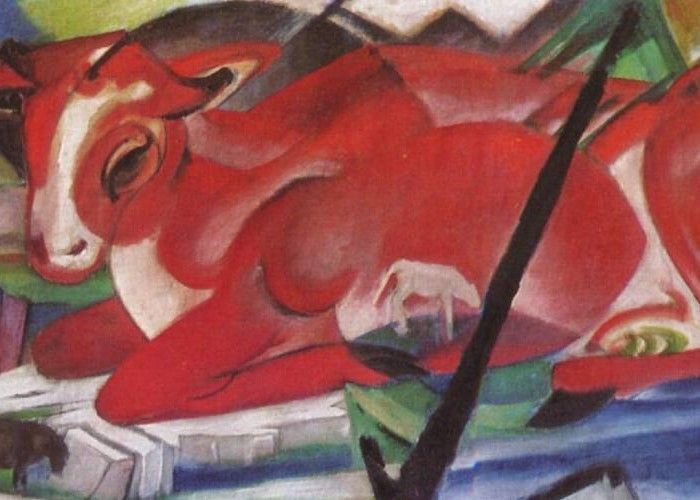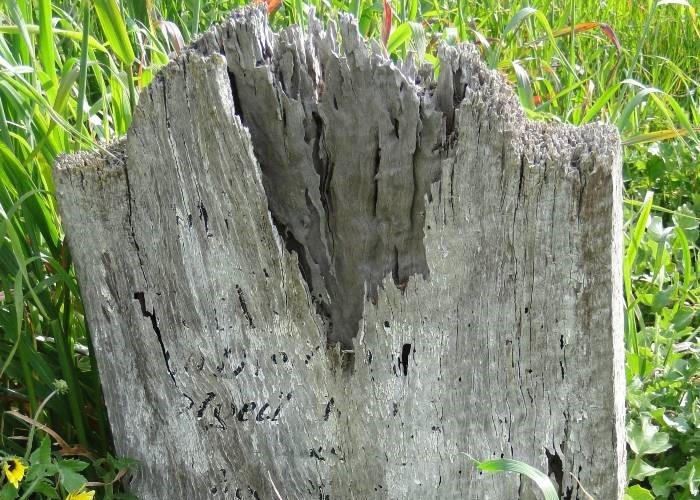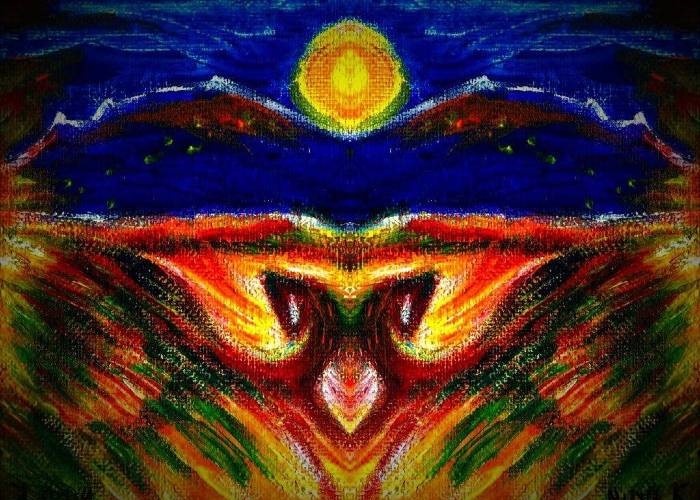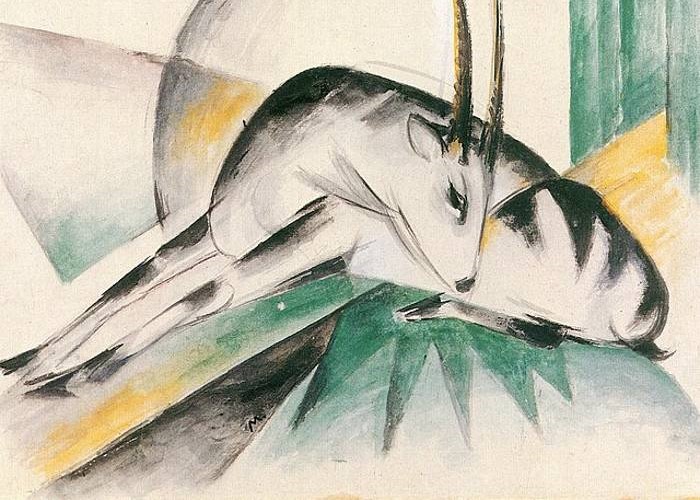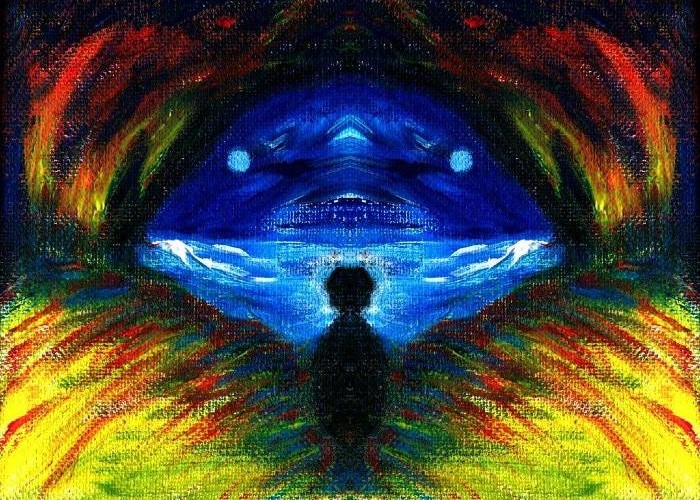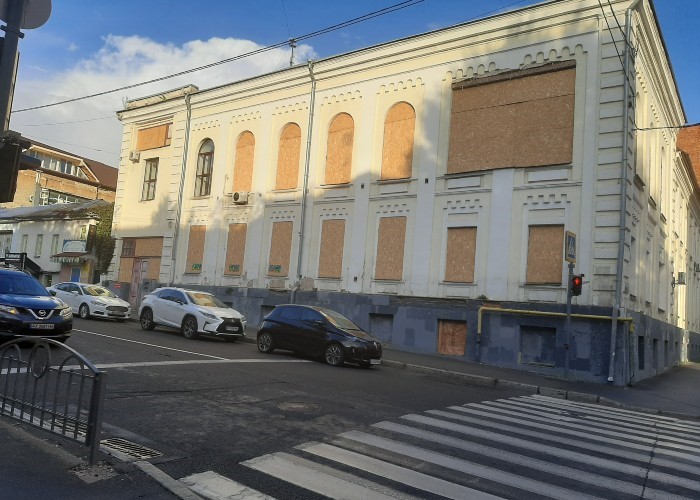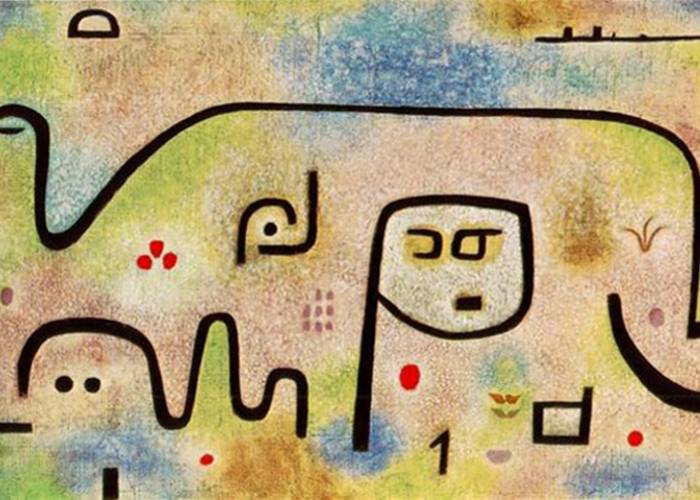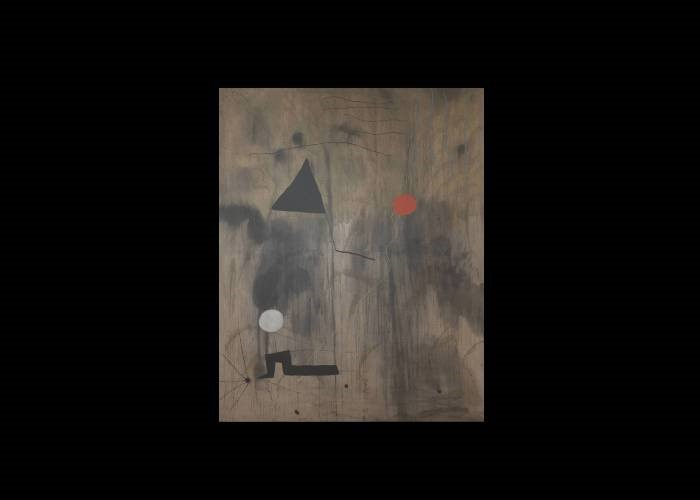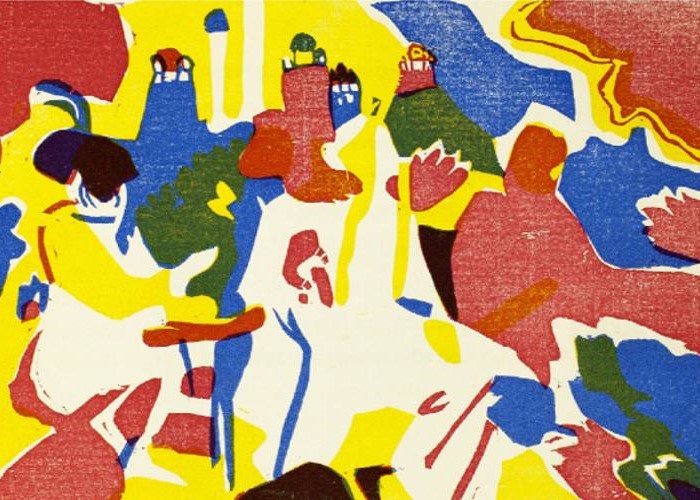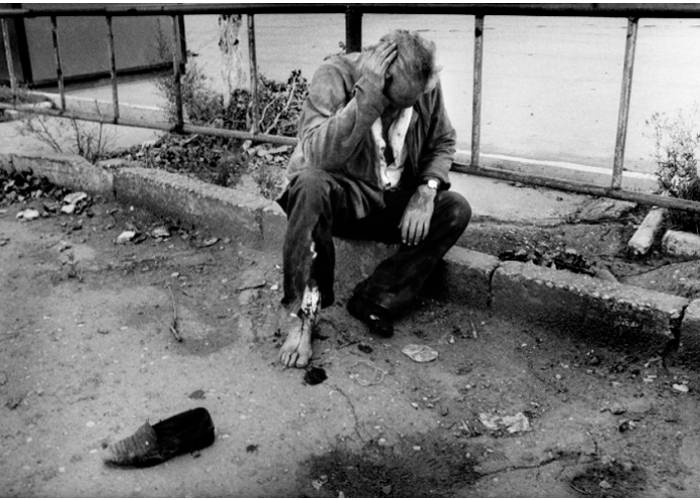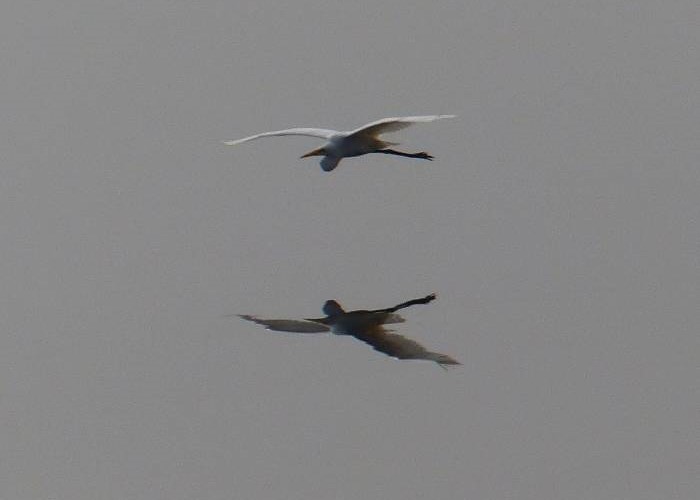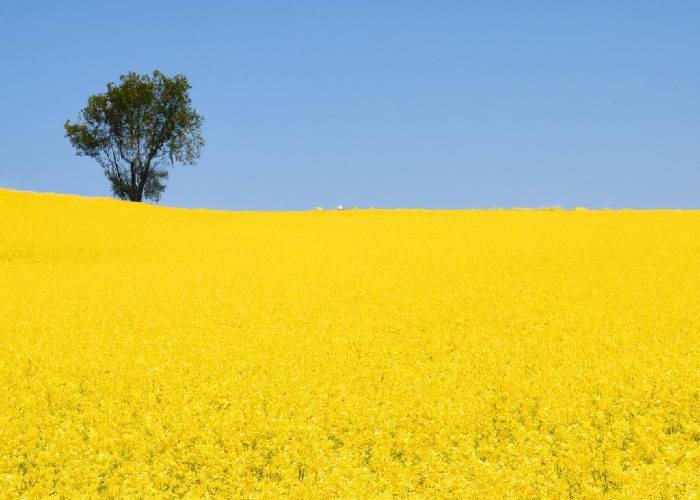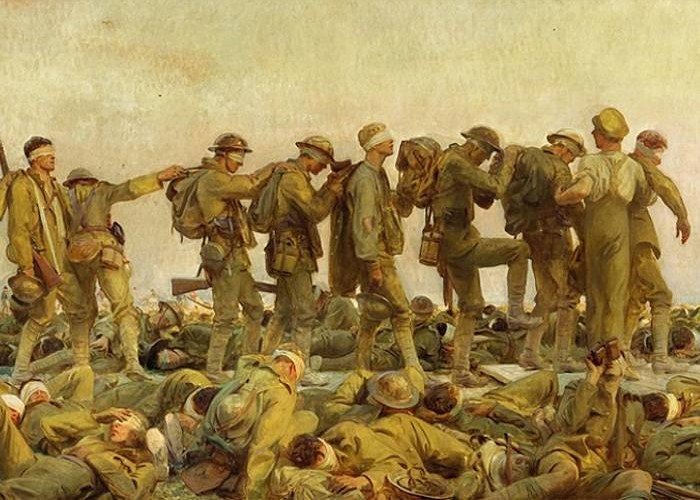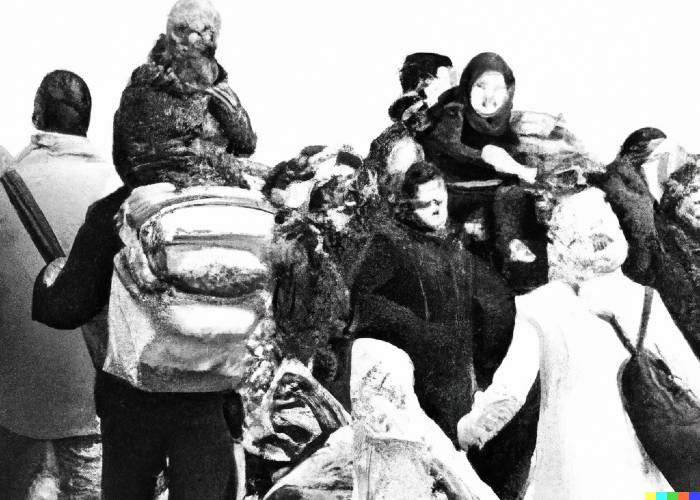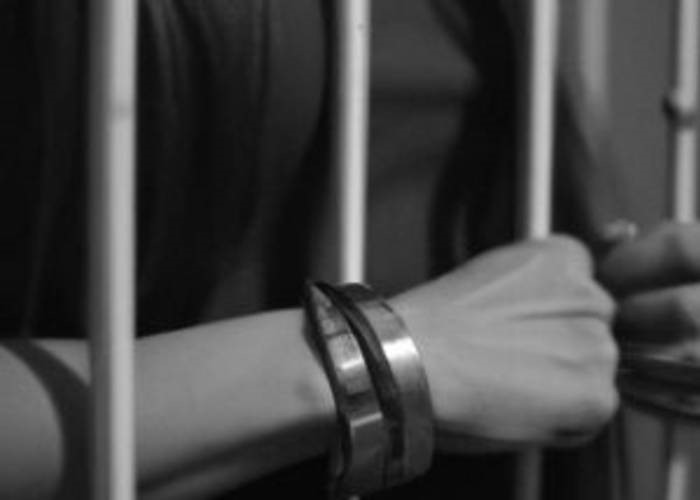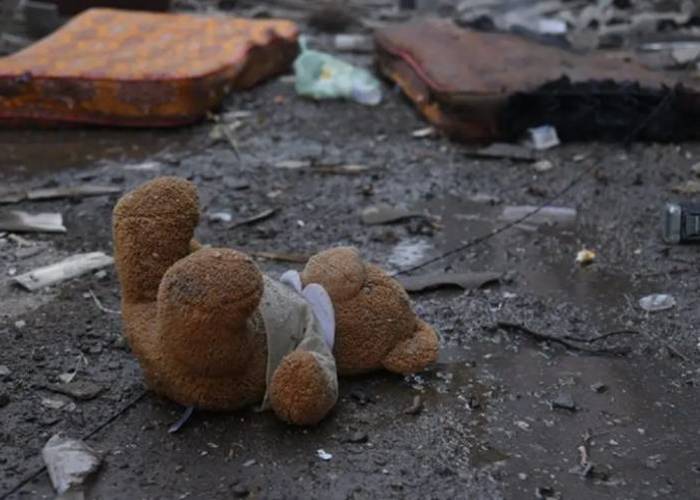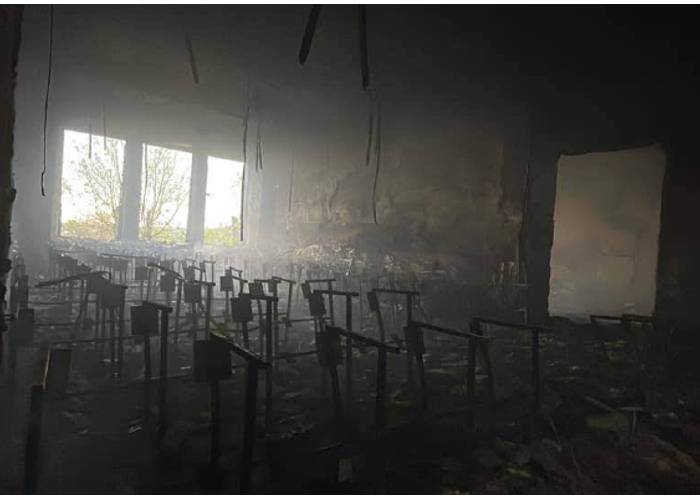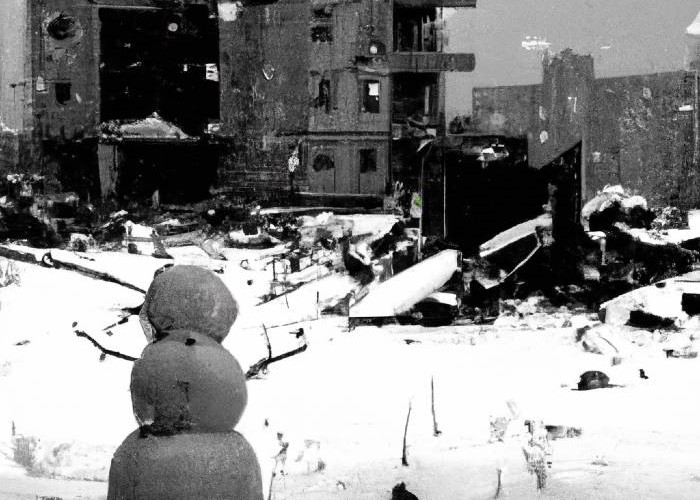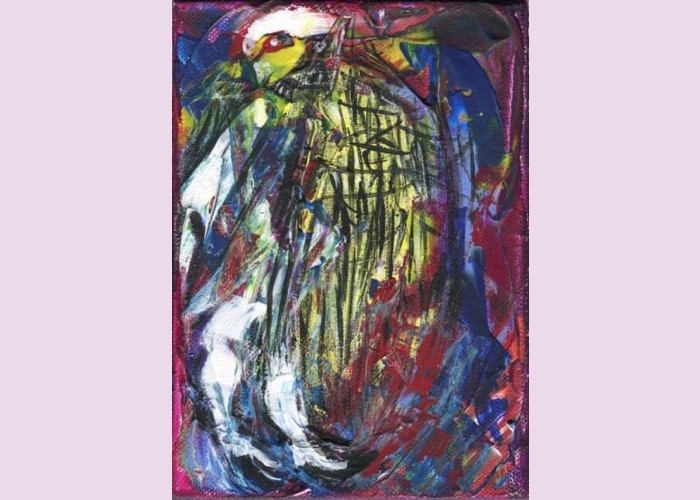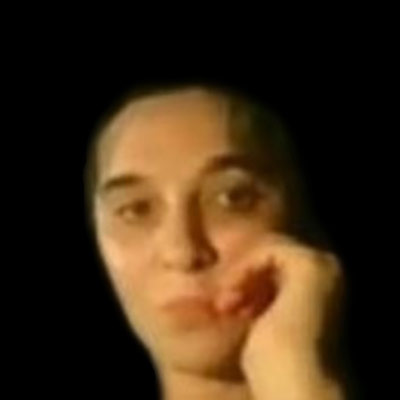Dedicated to chemotherapy survivors
The event took place in a deserted, ghastly space. The men who would attack the being were dressed as cavemen. There were five of them. The being, man and beast at once, endured the onslaught bellowing, huffing and puffing, and finally letting them do as they pleased.
The men perpetrating the attack did it without any feelings of guilt, commiseration, or rage. They did it, period. They did it as neither a pleasing nor repulsing duty. They did it for a salary, as mercenaries who believe that, against the enemy, anything goes. I, as a journalist, as a witness, was compiling, writing, describing, and photographing the event.
The being started to transform itself with mutilations (changing forms internally and externally). It tried to adapt to its newly acquired disability. But as soon as the creature’s attempts allowed it to stand up, the men from the team poisoned and fumigated it with chemical substances of different lethal colors. Then, the being transformed itself into a surviving specter of itself. Despite it all, it was still alive, not knowing who it was or if it would continue to be someone.
It was then that they, lacking any feelings whatsoever, burned him. The being did not scream, nor did it die; once again, it transformed itself. This time, no longer being half-animal, half beast, but rather half tree, half specter; its dry branches twisting onto itself. An eye hanging from the scorched leaves, the mass of its body —that now seemed to have gained weight— slithering with difficulty through that spaceless and timeless space where the attack had occurred.
The men considered their job done. They gathered their mallets, their uniforms made of animal hides, and, with an indifferent expression, started to leave. The being, hardly able to move, followed them, recognizing in itself the awful creature created by them, the ones who would now assume no responsibility.
I continued being fascinated, jotting down everything in my notes and immortalizing the moment with my camera. The human tree seemed to be looking for a way out, or just for an explanation of how to live from that moment on within that skin that would never be the one he was born with.
The men, with another case in mind, shared among themselves a subtle and professional smile, moving away forever from the being that, abandoned to its fate, could only follow their movements with its gaze.
Translated from Spanish by Marko Miletich
El libro de los enigmas /The Book of Enigmas by Linda Morales Caballero.
~ ~ ~
ВОЙНА
Посвящается пережившим химиотерапию
Мероприятие проходило в пустынном, жутком помещении. Те, кому предстояло напасть на существо, были одеты как первобытные люди. Их было пятеро. Существо – одновременно человек и зверь – рыча, пыхтя и отдуваясь, выдерживало их натиск, но в конце концов позволило им сделать с собой все, что им заблагорассудится.
Нападавшие на существо делали это безо всякого чувства вины, сострадания или гнева. Им полагалось это делать по долгу службы,, и они выполняли свою обязанность, не испытывая ни удовольствия, ни отвращения. Делали они это за зарплату, как наемники, которые считают, что против врага можно пойти на всё. Я, как журналист и свидетель, собирала, описывала и фотографировала происходящее.
Существо пробовало менять свои увечья. Оно менялось внутри и снаружи, пытаясь приспособиться к своей новоприобретенной инвалидности. Но как только, благодаря непрестанным усилиям, существу удавалось встать, нападающие на него люди травили и окуривали его смертоносными, крашенными химическими веществами. Тогда существо стало превращаться в призрак самого себя. Тем не менее, оно все еще было живо, хотя и само не знало, кто оно и будет ли оно продолжать быть.
Тогда, полностью лишенные каких бы то ни было чувств, люди стали его жечь. Существо не кричало и не умирало. Оно снова преобразилось. Из полу-зверя, полу-чудовища, оно теперь стало полу-деревом, полу-призраком; Его глаз свисал с опаленных листьев, а масса его тела – теперь, казалось весившего намного больше – с трудом скользила по тому безмерному и безвременному пространству, в котором шла война.
Когда они сочли свою работу законченной, люди собрали свои инструменты и шкуры животных, и с безразличным выражением лиц стали уходить. Существо, едва способное двигаться, следовало за ними, ощущая в себе ужас, созданный теми, на ком теперь не будет лежать никакой ответственности.
Я всё ещё была под впечатлением виденного, записывая всё в свои блокноты и увековечивая всё происходящее на плёнке. Человек-дерево, казалось, искал выход или просто объяснение, как жить дальше в этой новой коже, которая никогда не будет той, в которой он родился.
Наемники, у которых на уме уже было новое задание, обменялись тонкими профессиональными улыбками, навсегда бросая на произвол судьбы существо, способное теперь следить за их движениями только взглядом.
Перевела на русский Нина Косман
The Book of Enigmas / El libro de los enigmas (Книга загадок) Линды Моралес Кабальеро.
~ ~ ~
WAR (The original, in Spanish)
Guerra
A los sobrevivientes de tratamientos químicos
El evento tuvo lugar en un espacio despoblado, en blanco. Los hombres que atacarían al ser estaban vestidos de cavernícolas. Eran cinco. El individuo, hombre y bestia a la vez, recibió las arremetidas del brutal procedimiento mugiendo, bufando y al final dejándose hacer a voluntad.
Los hombres que perpetraban el ataque lo hacían sin sentimiento de culpa, conmiseración o rabia. Lo hacían y ya, como un deber que ni gusta ni repele. Lo hacían por un sueldo, como mercenarios para quienes todo vale contra el enemigo. Yo, como periodista y testigo, recopilaba, escribía, describía y fotografiaba semejante suceso.
El ser se fue transformando con las mutilaciones. Adquiría formas cambiantes por dentro y por fuera. Trataba de acomodarse a su nueva invalidez. Pero en cuanto el intento parecía permitirle mantenerse en pie, los hombres del equipo lo envenenaron fumigándolo con substancias químicas de diferentes y mortales colores. Entonces, el sujeto se transformó en un espectro sobreviviente de sí mismo. Continuó vivo a pesar de todo. Sin saber bien ya quién era o si continuaría siendo alguien.
Fue entonces cuando, exentos de sentimiento alguno, lo quemaron. La criatura no gritó, tampoco murió. Se transformó una vez más. Esta vez ya no sería medio animal, medio bestia, sino medio árbol, medio espectro. Sus ramas secas se retorcían sobre sí mismas. Un ojo le colgaba caprichosamente entre las hojas chamuscadas- La mole de su cuerpo, que parecía haber subido de peso, se deslizaba con dificultad por ese ambiente sin espacio ni tiempo donde había ocurrido el ataque.
Los hombres dieron por terminado su trabajo. Recogieron sus pertrechos, sus uniformes cavernícolas hechos de pieles, y con expresión indiferente comenzaron a marchar. La criatura, pudiéndose mover a duras penas los siguió reconociéndose un engendro creado por ellos, quienes ahora no asumirían ningún vínculo o responsabilidad.
Yo seguí fascinada registrando todo en mis apuntes e inmortalizando el momento con mi cámara. El humano-árbol parecía buscar una salida. O tan sólo una explicación de cómo vivir desde aquel momento en aquella piel, que jamás volvería a ser aquella en la que había nacido.
Los mercenarios, con otro caso en mente, compartieron entre ellos una sonrisa profesional y leve, alejándose para siempre del ser que, abandonado a su suerte, solo pudo seguirlos con la mirada.
From: El libro de los enigmas (The Book of Enigmas) by Linda Morales Caballero.


